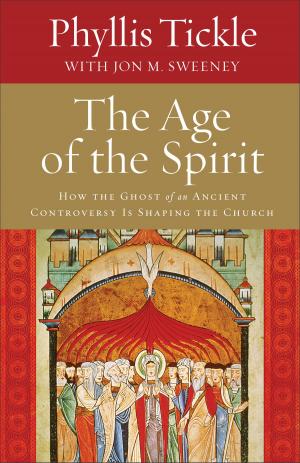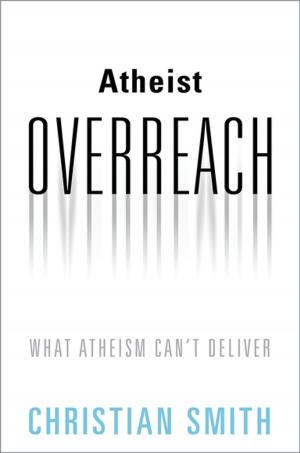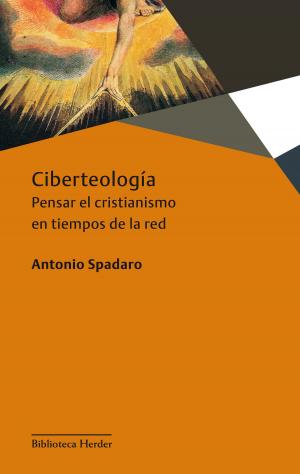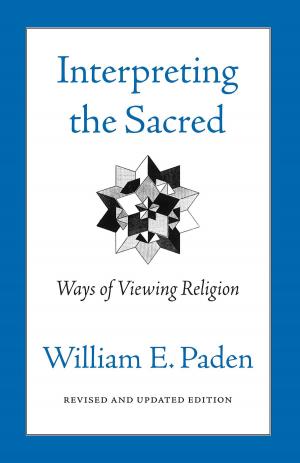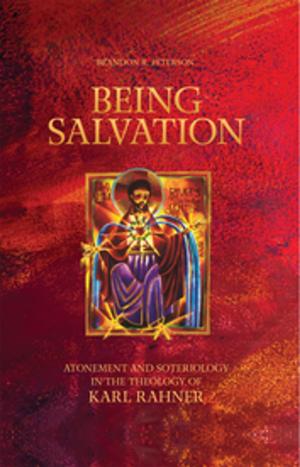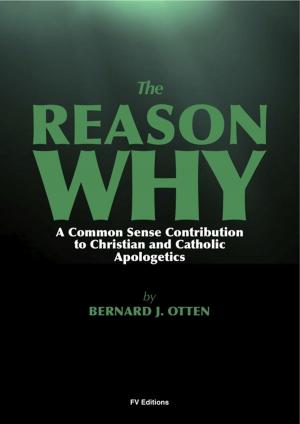| Author: | James Thwaites | ISBN: | 9780987170613 |
| Publisher: | Teleios Resource | Publication: | November 26, 2013 |
| Imprint: | Language: | English |
| Author: | James Thwaites |
| ISBN: | 9780987170613 |
| Publisher: | Teleios Resource |
| Publication: | November 26, 2013 |
| Imprint: | |
| Language: | English |
JAMES THWAITES draws from the ancient Hebrew vision of life in creation, as described in the Scriptures; this with a view to changing the way we see and engage God’s creation. His insight into the nature, design and purpose of creation enables us to begin to respond in new ways to our work in healthcare and healing. What emerges from this enquiry is an understanding of what THWAITES calls ‘the remedial space design of creation’. This God-given design works to bring divine reality to bear on people, with a view to bringing them to maturity in life and in God. In a book named TOWARDS A THEOLOGY OF HEALTHCARE IN CREATION, it would stand to reason that an event such as the Fall, which is said to have caused all human pain, disease, decay and death, needs to be explored in the light of Scripture. Indeed, for Christians, these creation forces are in effect said to be the underlying reason why healthcare practice exists. For this reason THWAITES contrasts the ancient Hebrew vision of the creation with that of Plato, the Greek philosopher (427-347BC). Plato’s impact on early church thinking caused a division in the Christian mind between the natural/human realm and the spiritual/divine realm – thereby impacting profoundly on the relationship between humanity and God. Jonathon Sachs, the recently retired Chief Rabbi of the Commonwealth, says of Plato that ‘Not just philosophy, but [also] Western religion has been haunted by Plato’s ghost’. THWAITES speaks of the ancient Hebrew vision, which Christ and Paul and Isaiah knew. This vision of life, he says, holds the cure to Plato’s dualism. It is from that ‘cure’ that our understanding of the Fall can begin to change; thereby enabling us to see the relationship between God and humans, and creation forces – such as suffering, disease, decay and death – in a new light. It is in this Hebraic light that we are able to begin to fathom the nature and strategic purpose of God’s remedial space design of creation. It is this remedial space design that will enable both healthcare workers and everyday people to make a lot more sense of God’s relationship to human suffering, disease and death. TOWARDS A THEOLOGY OF HEALTHCARE IN CREATION has been written in the hope that people, be they in healthcare or not, will be able to more fully respond – theologically, relationally and practically – to these powerful creation forces God has made. Many healthcare workers, who believe in God, have already experienced the benefits of this Hebraic insight from the Scriptures. THWAITES’ prayer is that many more people will engage with this creation design, in the hope that its designer, God, can become more fully known to humanity. WHAT OTHERS ARE SAYING– CHRIS STEYN, INTERNATIONAL COORDINATOR, HEALTHCARE CHRISTIAN FELLOWSHIP, EUROPE: If transformation in healthcare for the glory of God is something you want to be involved in, you need to read this book. The author will challenge your presuppositions and force you to re-think your world-view. This book will assist Christians to engage in a vigorous and in-depth conversation about the nature of God’s purpose for healthcare and healing. I believe that this kind of enquiry and dialogue is exactly what is needed at this time. BILLY KENNEDY, SENIOR LEADER OF NEW COMMUNITY, SOUTHAMPTON, UK: This book is a prime example of the kind of theological enquiry we need at this time. I believe that this book will not only equip Christians in healthcare, but will also bring value and insight to many other spheres of work. I highly recommend this book to you. DR KEN CURRY, HEALTH CARE IN CHRIST, AUSTRALIA: The author’s concept of the ‘remedial space’ is extremely helpful in working with people with a great range of illnesses and complex issues. His teaching and explorations in these areas are now produced in this book. I commend this book to all who practice in healthcare and those who are seeking a more biblical understanding of healthcare, illness, healing and wholeness.
JAMES THWAITES draws from the ancient Hebrew vision of life in creation, as described in the Scriptures; this with a view to changing the way we see and engage God’s creation. His insight into the nature, design and purpose of creation enables us to begin to respond in new ways to our work in healthcare and healing. What emerges from this enquiry is an understanding of what THWAITES calls ‘the remedial space design of creation’. This God-given design works to bring divine reality to bear on people, with a view to bringing them to maturity in life and in God. In a book named TOWARDS A THEOLOGY OF HEALTHCARE IN CREATION, it would stand to reason that an event such as the Fall, which is said to have caused all human pain, disease, decay and death, needs to be explored in the light of Scripture. Indeed, for Christians, these creation forces are in effect said to be the underlying reason why healthcare practice exists. For this reason THWAITES contrasts the ancient Hebrew vision of the creation with that of Plato, the Greek philosopher (427-347BC). Plato’s impact on early church thinking caused a division in the Christian mind between the natural/human realm and the spiritual/divine realm – thereby impacting profoundly on the relationship between humanity and God. Jonathon Sachs, the recently retired Chief Rabbi of the Commonwealth, says of Plato that ‘Not just philosophy, but [also] Western religion has been haunted by Plato’s ghost’. THWAITES speaks of the ancient Hebrew vision, which Christ and Paul and Isaiah knew. This vision of life, he says, holds the cure to Plato’s dualism. It is from that ‘cure’ that our understanding of the Fall can begin to change; thereby enabling us to see the relationship between God and humans, and creation forces – such as suffering, disease, decay and death – in a new light. It is in this Hebraic light that we are able to begin to fathom the nature and strategic purpose of God’s remedial space design of creation. It is this remedial space design that will enable both healthcare workers and everyday people to make a lot more sense of God’s relationship to human suffering, disease and death. TOWARDS A THEOLOGY OF HEALTHCARE IN CREATION has been written in the hope that people, be they in healthcare or not, will be able to more fully respond – theologically, relationally and practically – to these powerful creation forces God has made. Many healthcare workers, who believe in God, have already experienced the benefits of this Hebraic insight from the Scriptures. THWAITES’ prayer is that many more people will engage with this creation design, in the hope that its designer, God, can become more fully known to humanity. WHAT OTHERS ARE SAYING– CHRIS STEYN, INTERNATIONAL COORDINATOR, HEALTHCARE CHRISTIAN FELLOWSHIP, EUROPE: If transformation in healthcare for the glory of God is something you want to be involved in, you need to read this book. The author will challenge your presuppositions and force you to re-think your world-view. This book will assist Christians to engage in a vigorous and in-depth conversation about the nature of God’s purpose for healthcare and healing. I believe that this kind of enquiry and dialogue is exactly what is needed at this time. BILLY KENNEDY, SENIOR LEADER OF NEW COMMUNITY, SOUTHAMPTON, UK: This book is a prime example of the kind of theological enquiry we need at this time. I believe that this book will not only equip Christians in healthcare, but will also bring value and insight to many other spheres of work. I highly recommend this book to you. DR KEN CURRY, HEALTH CARE IN CHRIST, AUSTRALIA: The author’s concept of the ‘remedial space’ is extremely helpful in working with people with a great range of illnesses and complex issues. His teaching and explorations in these areas are now produced in this book. I commend this book to all who practice in healthcare and those who are seeking a more biblical understanding of healthcare, illness, healing and wholeness.

